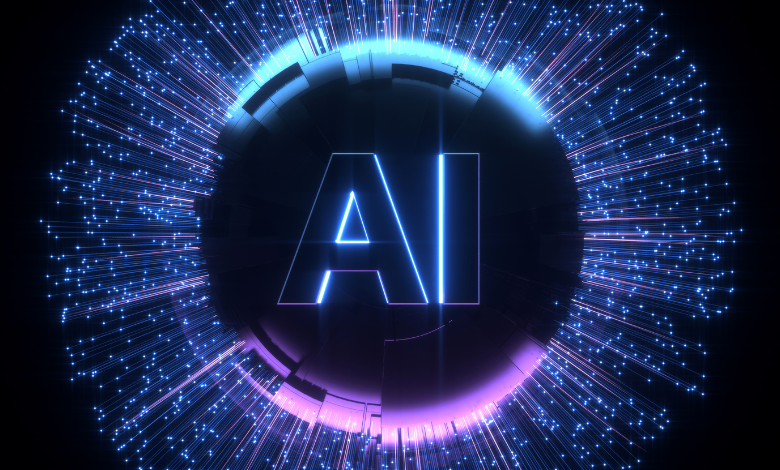The Impact of ćp Intelligence on the Future of Work

Artificial Intelligence (AI) is rapidly transforming the global workforce, revolutionizing the way we work and reshaping industries across the spectrum. As technological advancements continue to accelerate, the implications of AI on the future of work become increasingly profound. This article explores the historical context, current landscape, and future implications of AI in the workplace, shedding light on the multifaceted impact it has on society.
Historical Context of AI in the Workplace
The journey of AI in the workplace dates back to the mid-20th century when pioneers like Alan Turing laid the foundation for computational thinking. Over the years, the development of machine learning algorithms, neural networks, and the advent of powerful computing capabilities fueled the rise of AI applications in various industries. From early automation to the emergence of sophisticated AI systems, the historical evolution of AI has played a pivotal role in shaping the contemporary workforce.
Current Landscape of AI in the Workplace
Today, AI is ubiquitous in the workplace, permeating diverse sectors such as healthcare, finance, manufacturing, and beyond. The prevalence of AI-powered tools and technologies has led to increased efficiency, data-driven decision-making, and the automation of routine tasks. Chatbots, robotic process automation, and machine learning algorithms are just a few examples of how AI is transforming the nature of work, augmenting human capabilities, and driving innovation.
Societal and Economic Implications
The integration of AI into the workforce brings about profound societal and economic changes. While automation streamlines processes and boosts productivity, concerns about job displacement and economic inequality arise. The ethical considerations surrounding AI, such as bias in algorithms and the impact on privacy, underscore the need for thoughtful regulation and ethical guidelines to ensure a fair and inclusive future of work.
Technological Advancements and Innovations
The rapid pace of technological advancements in AI is reshaping the very fabric of work. Machine learning models are becoming more sophisticated, enabling predictive analytics and personalized user experiences. Automation technologies, coupled with AI, are evolving to handle complex tasks traditionally performed by humans, leading to the creation of new opportunities and the transformation of existing job roles.
Challenges Faced by the Workforce
As AI continues to advance, the workforce encounters various challenges. Job displacement due to automation raises questions about retraining and upskilling initiatives. Ethical dilemmas surrounding the use of AI technologies demand a nuanced approach to development and deployment. Striking the right balance between automation and human intervention is a delicate task that requires careful consideration of both technological and social factors.
Opportunities for Growth and Development
Despite the challenges, the integration of AI in the workforce presents numerous opportunities for growth and development. New job roles emerge in AI research, development, and maintenance. The demand for skills in data science, machine learning, and AI ethics creates avenues for continuous learning and professional advancement. Organizations that embrace AI can foster a culture of innovation, encouraging employees to engage with evolving technologies.
Perspectives from Industry Experts
To gain a deeper understanding of the impact of AI on the future of work, we turn to industry experts for insights. Interviews with thought leaders, executives, and professionals in AI and workforce development provide diverse perspectives on navigating challenges and harnessing the full potential of AI technologies. Their experiences and recommendations offer valuable guidance for individuals and organizations adapting to the evolving landscape.
Case Studies
Examining real-world examples allows us to grasp the tangible effects of AI on different industries and job sectors. Case studies showcasing successful implementations of AI technologies shed light on best practices, lessons learned, and the transformative power of AI in enhancing productivity, reducing costs, and creating new opportunities for businesses and workers alike.
Future Outlook and Recommendations
Looking ahead, the future of work in the era of AI holds both promise and uncertainty. Predicting the trajectory of AI requires a nuanced understanding of technological advancements, societal needs, and ethical considerations. Recommendations for policymakers, businesses, and individuals encompass strategies for adapting to change, fostering inclusivity, and ensuring the responsible development and deployment of AI technologies.
Conclusion
In conclusion, the impact of artificial intelligence on the future of work is a dynamic and multifaceted phenomenon. From its historical roots to the current landscape and future possibilities, AI shapes how we approach work, innovation, and societal challenges. As we navigate the complexities of this transformative era, it is imperative to strike a balance that maximizes the benefits of AI while addressing the ethical, social, and economic considerations that accompany its integration into the workforce. Through continuous dialogue, collaboration, and a commitment to responsible AI development, we can forge a future of work that is both technologically advanced and socially equitable.
This is just the beginning of the article. If there are specific points you would like to expand upon, or if you have additional details or preferences, please let me know, and I can further refine and expand the content!



